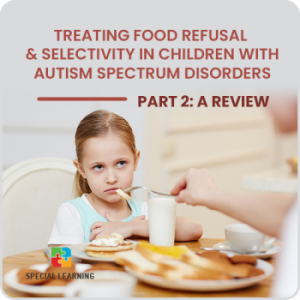Nurturing Self-determination in Youths with Disabilities
Parents play a major role in the transition of their youth with disabilities from childhood to adulthood. As a driving force to this stage in development, parents should acknowledge that self-determination is an important component to the success of such transition. It helps foster positive behavior, informed decision-making, and relationship building which are the foundation of independence.
It is common knowledge to parents of youths with disabilities that the physical and psychological changes during adolescence can be a very daunting and awkward experience to a growing individual. This phase, in which a person transitions from childhood to adulthood, is a critical time for the formation of self-determination, which is “the ability to identify and achieve goals based in a foundation of knowing and valuing oneself” (Field & Hoffman, 1994, p. 164).
Self-determination is necessary to nurture the growth of an adolescent, and although it is equally important to typical adolescents, those with disabilities particularly require “instructional emphasis and support system” (Field, Hoffman & Posch, 1997, p.2) because they have to handle much more difficult situations and have to face confusing factors such as (Field, Hoffman, and Posch, 1997, p. 2):
- “Physical, cognitive or behavioral issues associated with their disability;
- Social relationship issues and possible stigma resulting from disability status;
- A heightened concern of parents and family members related to increased independence of the adolescent; and
- Inability of systems (e.g., schools, employers, agencies) to adequately accommodate the needs of adolescents with disabilities.”
While it is true that the often insufficient availability of external support systems and unreliable delivery of service can make parents become increasingly protective of their youth with disabilities when it comes to making decisions, which is a crucial factor in developing self-determination, strong parental support can become a major barrier to being self-determined. It is thus imperative that parents should gradually shift control of making a decision for their adolescent for a smooth transition into adulthood and enhancement of self-determination.
There are several special education instructional strategies available for parents to help encourage self-determination in adolescents with disabilities, which are also applicable to typical adolescents, these include:
- Individual or small-group activities;
- Modeling;
- Roleplay;
- Performance feedback via videotaping;
- Use of case studies or specific scenarios;
- Self-generated activities;
- Simulated situations, and
- Community-based instruction.
Copyright © by Special Learning Inc. All right reserved.
No part of this article may be reproduced in any manner whatsoever without written permission except in the case of brief quotations embodied in critical articles and reviews. For information, contact Special Learning Inc., at: contact@special-learning.com








